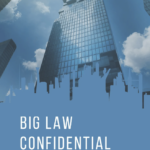Footnotes Can Be Deadly
Perhaps the biggest power of footnotes is that people often do not read them.
 In law school, I had a constitutional law professor who mentioned on a few different occasions how footnotes can be deadly within the legal profession. The professor noted how footnote 4 of the Carolene Products case established an entire sphere of constitutional law, so even Supreme Court Justices could understand and harness the power of footnotes. From my own experience, there are a few ways how footnotes can be deadly in legal practice, and attorneys can use footnotes when attempting to accomplish certain tasks for their clients.
In law school, I had a constitutional law professor who mentioned on a few different occasions how footnotes can be deadly within the legal profession. The professor noted how footnote 4 of the Carolene Products case established an entire sphere of constitutional law, so even Supreme Court Justices could understand and harness the power of footnotes. From my own experience, there are a few ways how footnotes can be deadly in legal practice, and attorneys can use footnotes when attempting to accomplish certain tasks for their clients.
Perhaps the biggest power of footnotes is that people often do not read them. I was definitely guilty of this earlier in my career. Attorneys are busy people like all other kinds of professionals, and sometimes we take shortcuts when reviewing documents that we need to read in the course of our jobs. When skimming a document, an attorney might naturally not read the footnotes since footnotes presumably contain less important content than the body of a document. Moreover, I usually hate reading the papers of an adversary in the first place, and focusing on the body of a document is a solid way to save time.
One time, I filed a summary judgment motion against two parties. One of the parties only had a derivative claim, and this legally prevented her from bringing her claims in that case. In any event, my adversary never addressed the derivative claims of one of the parties in his papers. I had absolutely no idea why this lawyer did not address the derivative claims of one of the parties in his opposition papers. I thought this was all part of his strategy, and it was really distressing not to know why my adversary did not talk about some claims and focused on others.
As it turned out, my adversary had dropped a footnote on the first page of his brief saying that he was fine with dismissing the case involving one of his clients and this was the reason why he was only focusing on the other party in his papers. Of course, normally a lawyer would sign a stipulation of discontinuance if he were fine dismissing the claims of a party, but agreeing to have summary judgment entered against a party also happened regularly. Had I just read this footnote, I would have saved myself a lot of heartache when preparing my reply papers. After this situation, I resolved that I would read each and every footnote contained in legal papers that I came across.
In many instances, footnotes can be a great way to include points in a brief without alerting your adversary to a weakness in your argument. Usually, parties need to mention arguments in front of a trial court if they wish to preserve arguments for appeal. As a result, lawyers may want to include points in their papers just in case they come up in future. In any event, it is possible that litigants can preserve arguments for appeal even if they only mention them in footnotes.
One time, I was drafting opposition papers in response to a nasty motion filed by an adversary. I discovered a damaging argument that my adversary could make against my position, but my adversary did not mention this argument in his moving papers. However, since I was unsure if my adversary would address this issue in his reply papers or if the court would decide to argue this point sua sponte, I wanted to touch upon this argument in my papers. However, I did not want to spend too much time on this argument since I did not want to alert my adversary to the fact that this argument existed.
As a result, I decided to touch upon this argument in the footnotes. The footnote was several sentences long, so I was worried that it would not stay under the radar and that my adversary would be tipped off that this damaging argument against my position existed. I was dreading my adversary filing reply papers, but when I finally reviewed the reply papers, I was relieved to discover that my adversary did not discuss the argument I feared. I think there was a good chance that my adversary never read my footnote or at least did not understand the potential argument that could have been made against me.
Sponsored


Legal Knowledge Management To Drive Dealmaking

What Do Millennials Think Of Law Firm Life?

Legal Knowledge Management To Drive Dealmaking
In any event, footnotes can be extremely useful to attorneys, and they can be deadly if lawyers do not take the time to read footnotes. Accordingly, lawyers should gloss over footnotes at their own peril.
 Jordan Rothman is a partner of The Rothman Law Firm, a full-service New York and New Jersey law firm. He is also the founder of Student Debt Diaries, a website discussing how he paid off his student loans. You can reach Jordan through email at jordan@rothmanlawyer.com.
Jordan Rothman is a partner of The Rothman Law Firm, a full-service New York and New Jersey law firm. He is also the founder of Student Debt Diaries, a website discussing how he paid off his student loans. You can reach Jordan through email at jordan@rothmanlawyer.com.
Sponsored

The Global Legal News You Need, When You Need It








